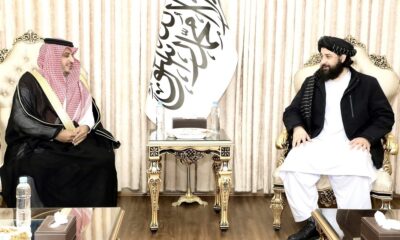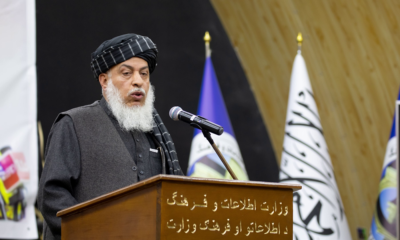Latest News
Afghan envoy meets UNHCR official in Islamabad, discusses mistreatment of migrants
The meeting comes amid ongoing reports of arbitrary detention and harassment of Afghan refugees and asylum seekers by law enforcement agencies in Islamabad in Pakistan.
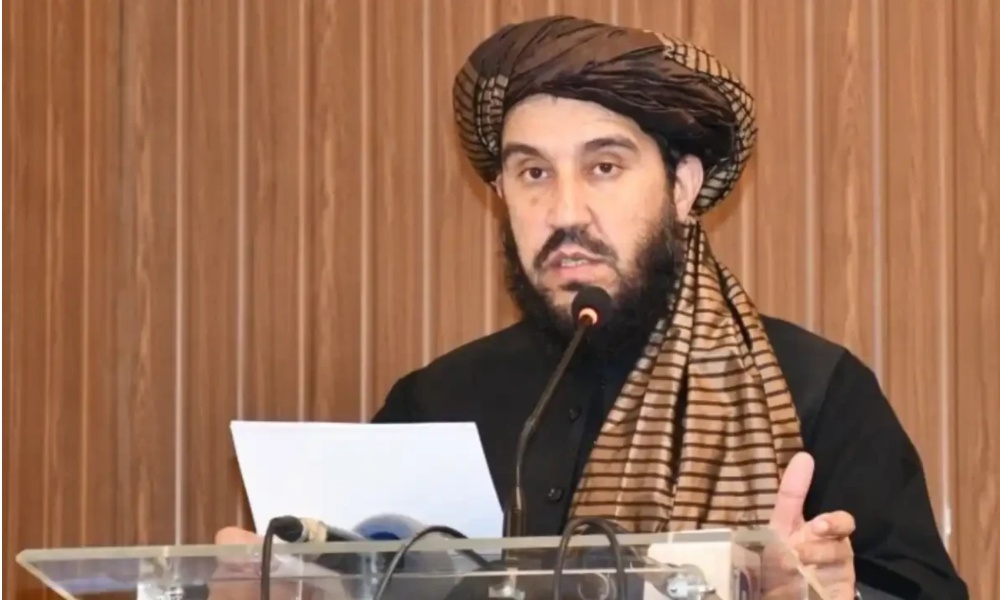
Sardar Ahmed Shakib, head of the Afghan Embassy in Islamabad, met with Philippa Candler, Representative of the United Nations High Commissioner for Refugees (UNHCR) in Islamabad this week and expressed concern over the detention of Afghan migrants in Islamabad and Rawalpindi.
The embassy in Islamabad said in a statement that Shakib emphasized that migrants who have legal documents should be supported and not arrested.
He added that in some instances they are forced to pay bribes and large sums of money.
Philippa Candler meanwhile said that she had received complaints about the mistreatment of Afghan migrants by the Pakistani police and added that she will discuss this matter with the Pakistani authorities in the coming days.
The meeting comes amid ongoing reports of arbitrary detention and harassment of Afghan refugees and asylum seekers by law enforcement agencies in Islamabad in Pakistan.
Babu Ram Pant, Deputy Regional Director for South Asia at Amnesty International, said last week this action by Pakistan was part of a large discriminatory policy against Afghans inside the country.
“The police night raids, harassment and arbitrary detention of hundreds of Afghan refugees, including women and children, in the capital city is part of a larger discriminatory policy against Afghans inside the country.
Amnesty International stated that the Pakistani government has repeatedly and arbitrarily enacted policies increasing the precarity of Afghan refugees inside the country… and this newest policy measure has endangered an already at-risk population.
Pant said: “The Pakistani authorities’ actions are sweeping and discretionary in nature and have resulted in the harassment and detention of refugees even when in possession of valid documents and visas.
“All refugees and asylum seekers, regardless of documentation status, have the right to due process and protection against forced return in international human rights law.
“Amnesty International urges Pakistan to abide by its obligations under international law, including the principle of non-refoulement, by taking immediate steps to ensure the release of all those detained and revoking the policy of obtaining an NOC at once.”
Latest News
Riyadh committed to expanding bilateral relations with Kabul: Saudi ambassador
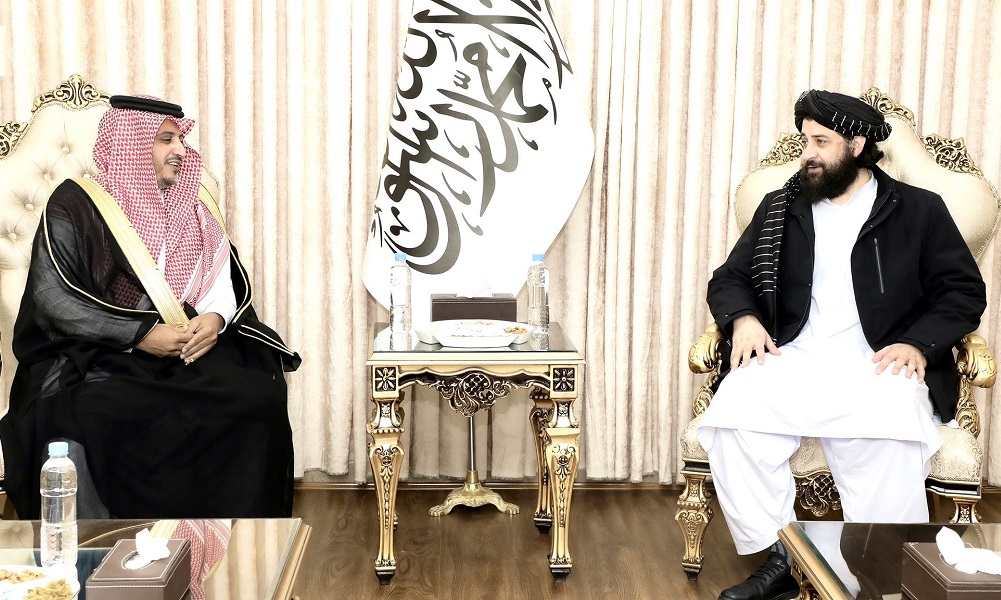
Faisal bin Talq al-Buqami, the Saudi Ambassador to Kabul, on Wednesday met with acting Minister of Defense Mohammad Yaqoob Mujahid and emphasized Riyadh's commitment to expanding economic, political, and humanitarian cooperation with Afghanistan.
Enayatullah Khwarizm, the spokesman for the Ministry of Defense said in a statement that Mujahid described Afghanistan’s relationship with Saudi Arabia as culturally and ideologically shared and inseparable, and expressed appreciation for Riyadh's cooperation in various fields.
According to the statement, Mujahid called the resumption of the Saudi Embassy's activities in Kabul important and significant.
Latest News
Stanikzai says media is an essential part of society
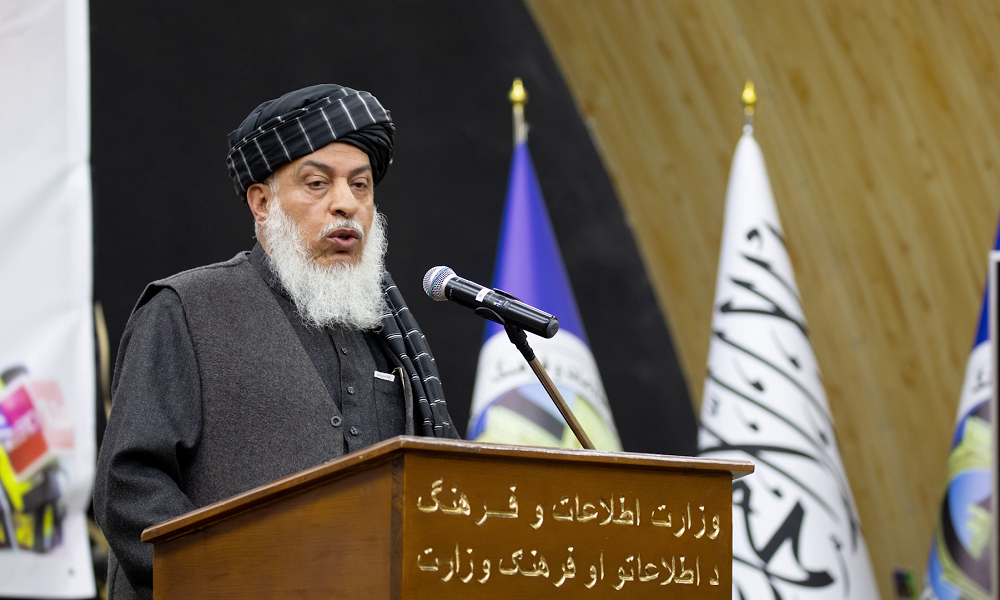
Sher Mohammad Abbas Stanikzai, the political deputy foreign minister, says media is an essential need in society.
Speaking at a seminar aimed at improving the capacity of spokespersons from ministries and independent government institutions, Stanikzai emphasized the importance of access to information and the vital role of media in Afghanistan.
"In today's age, media and spokespersons are a significant need for society and the country, and this sector must be strengthened. Spokespersons must be strong and able to withstand any situation. In order to cope with the circumstances, they should strive to have comprehensive information not only about their work environment but also about the country and society,” he said.
Khabib Ghafran, spokesperson for the Ministry of Information and Culture, also addressed the seminar and said: "The main goal of this seminar is to discuss how to improve the capacity of spokespersons in central departments of the Islamic Emirate and how to address the issue of access to information."
Meanwhile, some journalists and organizations supporting journalists are calling for timely and comprehensive information to be made available to them.
Hujatullah Mujaddidi, head of Afghanistan Independent Journalists Association, said: "It is the responsibility of journalistic and media institutions to support the media by enhancing journalists' capacities, improving media literacy and ethics, and working on maintaining neutrality and innovation."
Rohullah Danish, a journalist, stated: "It is necessary that Afghan media receive more support because they play a significant role not only in information publication but also in education and cultural development within society."
After three years, journalists say they are still facing challenges regarding access to information, and that this issue has not been fully resolved.
Latest News
Egeland says Donald Trump’s aid pause ‘disastrous’ for Afghanistan
Trump signed an executive order temporarily suspending all US foreign assistance programs pending reviews to determine whether they are aligned with his policy goals

The head of a major humanitarian organisation said U.S. President Donald Trump's order to halt foreign aid for 90 days would have immediate and disastrous consequences in Afghanistan where relief operations are already stretched thin.
Trump signed an executive order temporarily suspending all US foreign assistance programs pending reviews to determine whether they are aligned with his policy goals.
It was not immediately clear how much assistance would initially be affected by the Monday order as funding for many programs has already been appropriated by Congress and is obligated to be spent, if not already spent.
The scope of the order was not clear, including whether it applied to Afghanistan's humanitarian funding, which is channelled through NGOs and United Nations agencies.
Jan Egeland, the secretary general of the Norwegian Refugee Council, told Reuters that the decision had left agencies reeling as they braced for further cuts from the biggest donor to Afghanistan.
"A 90-day suspension of all aid, no new grants, no new transfer of funding, will have disastrous consequences immediately ... for an already starved aid operation for very poor and vulnerable girls and women and civilians in Afghanistan," he said during a video interview from Kabul late on Tuesday.
Afghanistan is home to more than 23 million people requiring humanitarian assistance - more than half the country's population - but aid has shrunk as donors face competing global crises and diplomats raise concerns about the Islamic Emirate’s restrictions on women in most areas of public life, including education and health.
Development funding that formed the backbone of government finances was cut after the IEA took over and foreign forces left in 2021.
Reuters reported last year that non-governmental groups played a critical role in filling the humanitarian void.
"If you go back in time it was a well funded operation, we got development assistance, then we could have perhaps have lived through three months of suspension, we cannot any more," Egeland said.
Trump told a rally shortly before taking office that aid to Afghanistan would be contingent on getting back billions of dollars of military equipment that U.S. forces left behind.
-

 Regional3 days ago
Regional3 days agoHamas frees hostages, Israel releases Palestinian prisoners on day one of ceasefire
-
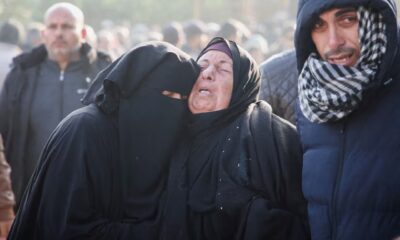
 World5 days ago
World5 days agoIsraeli cabinet approves Gaza ceasefire accord, due to take effect Sunday
-

 Sport5 days ago
Sport5 days agoILT20: Fernando blasts Sharjah Warriorz to a big win over Dubai Capitals
-
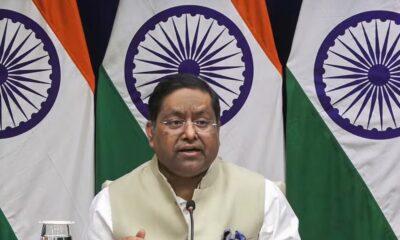
 Latest News5 days ago
Latest News5 days agoIndia says it seeks to strengthen relationship with Afghanistan
-

 World3 days ago
World3 days agoTrump promises harsh immigration crackdown on inauguration eve
-

 Latest News3 days ago
Latest News3 days agoTrump’s National Security Adviser says troops will not return to Afghanistan
-
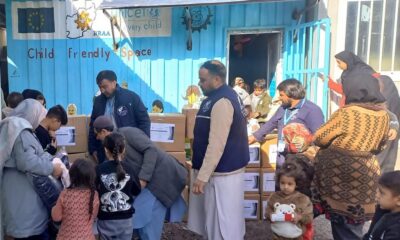
 Latest News4 days ago
Latest News4 days agoEU launches 36 million euros project to support displaced Afghans
-
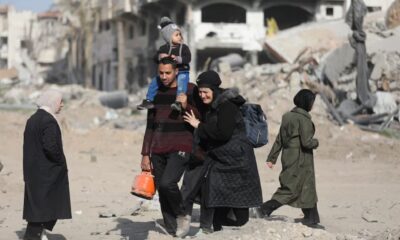
 Regional3 days ago
Regional3 days agoGaza ceasefire deal takes effect and fighting halts after delay


